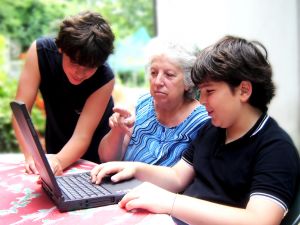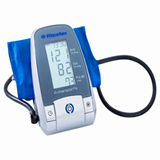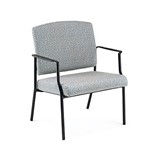Dr Delbaere, from Neuroscience Research Australia, will be awarded one of just 11 Achievement Awards for her innovative falls prevention research at the National Health and Medical Research Council 75th Anniversary Symposium this Wednesday evening.
"Teenagers might be the biggest users of technology right now, but sensor technology and video games are going to revolutionise the lives of older people by preventing falls and improving quality of life," says Dr Delbaere.
In people aged 65+ years, falls can cause serious injuries, such as hip fractures, and lead to reduced physical activity and a loss of independence. As Australia's population ages, falls will incur increasing health and economic costs.
Dr Delbaere is currently working with European research and industry partners on the iStoppFalls project to develop technology-based monitoring and exercise programs.
"By using technology, we can tailor prevention programs to the individual without incurring the huge costs normally associated with individualised treatment," she says. As part of the project, Dr Delbaere is working with Philips Research to develop new uses for its falls detection sensor pendant. Dr Delbaere believes the sensor will also be
extremely useful in assessing balance, strength and mobility.
"Poor balance, strength and mobility are all risk factors for future falls," says Dr Delbaere. "Our plan is to modify the sensor to measure these factors, which will then feed into software on the home computer to automatically calculate a falls prevention exercise program specifically designed for the individual's needs."
Philips Australia country manager, Harry van Dyk, says technology will play an integral role in not just detecting but preventing falls. "We hope this collaboration will ignite the use of technology to support independent living in Australia," he says.
Dr Delbaere's NeuRA colleague, Dr Stuart Smith, is currently developing the video game exercise component of the program, using technology such as Kinect.
"Video game solutions are a new way to engage older adults in balance-improving exercise," he says. "Exercise is one of the cheapest falls prevention solutions available."




-160x160-state_article-rel-cat.png)






